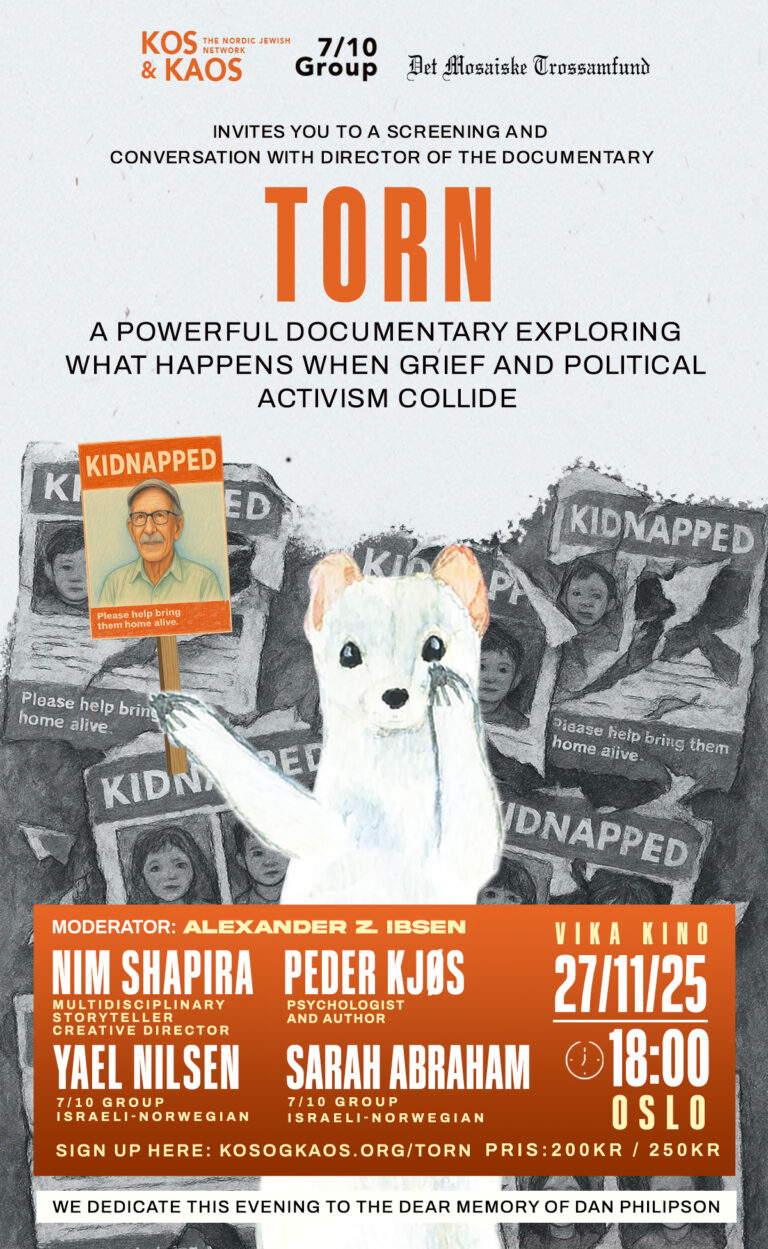
Torn Movie Screening
In November and December, Kos & Kaos had the honor of hosting three powerful
The event at Litteraturhuset in Oslo brought together scholars, researchers, and community members to discuss the troubling rise in antisemitism following the October 7th Hamas attacks and the ongoing Israeli-Palestinian conflict. Moderated by Carline Tromp, the evening offered a platform for academic reflections and personal accounts, shedding light on the deep-seated challenges of combating antisemitism in Norway and Europe. With perspectives from notable figures like Jeffrey C. Alexander of Yale, Johannes Due Enstad, Cathrine Thorleifsson, and the panelists Shira Beck, Cora Alexa Døving, Vibeke Moe, and Nina Grünfeld, the discussions covered history, contemporary challenges, media portrayals, and societal responses.
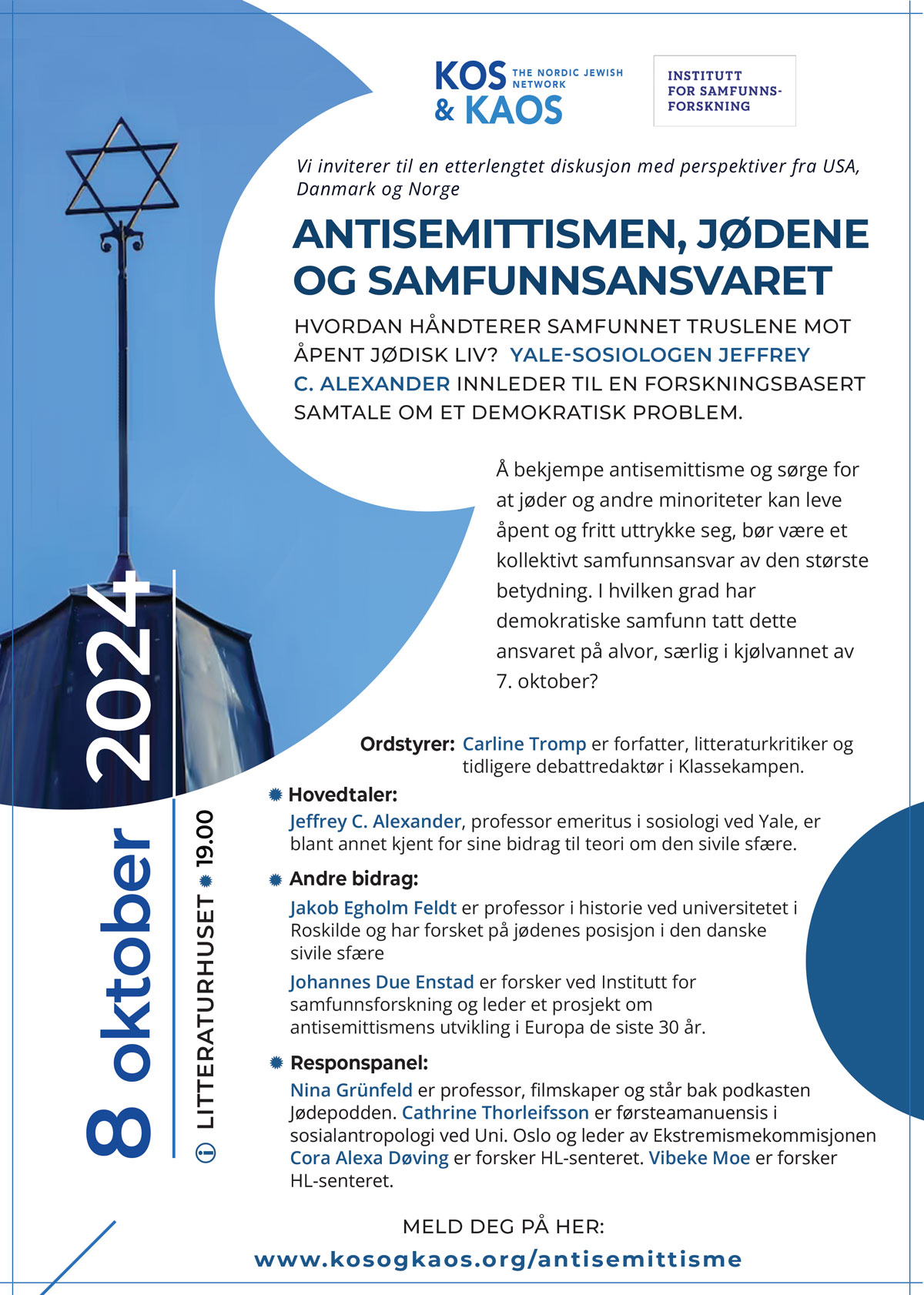
Jeffrey C. Alexander, Professor Emeritus at Yale University, opened the evening with a thought-provoking analysis of how antisemitism and the memory of the Holocaust have evolved in Western societies. Alexander introduced the concept of the “trauma drama,” explaining that after the Holocaust, Jewish suffering became central to Western moral consciousness, helping to suppress antisemitism for decades. However, as collective memories fade and other social traumas have emerged, this once-protective narrative has begun to erode. Alexander then explored how the Israeli-Palestinian conflict has altered perceptions of Jewish identity and Israel. He pointed out that while Israel was initially framed as a moral response to the Holocaust, its military actions—especially in Gaza—have cast Israel as an aggressor in international discourse. This, he argued, has led to the inversion of the moral lessons of the Holocaust, where Jews are no longer seen as the sole victims but are sometimes equated with their former oppressors. Alexander acknowledged the real existential threats Israel faces, but he also critiqued the rhetoric used by Israeli leaders to justify military actions, which has alienated many and contributed to the resurgence of antisemitism. He underscored that while not all criticism of Israel is antisemitic, modern anti-Zionism often becomes a vessel for older antisemitic stereotypes.
Johannes Due Enstad, a senior researcher at the Institute for Social Research, provided insights into how antisemitism has manifested across Scandinavia in the wake of the October 7th attacks. Enstad’s research showed a sharp rise in antisemitic incidents in Norway, Denmark, and Sweden, including hate crimes and vandalism. He pointed out that these incidents are not isolated but part of a broader pattern where social media and public discourse have become increasingly hostile toward Jews. While Sweden and Denmark have been proactive in condemning antisemitism, Enstad noted that Norway’s political response has been more muted, raising concerns about why the country, despite its democratic values, has been slower to address the issue.
Cathrine Thorleifsson, an associate professor at the University of Oslo and chair of Norway’s Extremism Commission, explored the intersection of extremism and antisemitism. She highlighted the rise in antisemitism from both right-wing extremists and Islamist groups, but also noted the alarming growth of antisemitism within mainstream society. Thorleifsson emphasized the need for a “whole of society” approach, urging government and civil society to work together to combat rising hatred and promote empathy, particularly in how the Israeli-Palestinian conflict is discussed.
Following the presentations, the evening shifted into a debate moderated by Carline Tromp. The panelists—Vibeke Moe, Nina Grünfeld, Cora Alexa Døving, Shira Beck, and Jeffrey C. Alexander—engaged in a wide-ranging discussion about how antisemitism manifests in everyday life in Norway and the role of media, political leaders, and civil society in combating it.
Vibeke Moe, a researcher from the Holocaust Center, shared insights from surveys on Norwegian attitudes towards Jews. She pointed out that while traditional forms of antisemitism have been declining, newer forms linked to criticism of Israel have risen significantly. Moe stressed that Norwegian media and public discourse often fail to distinguish between criticism of Israeli policies and the use of antisemitic stereotypes, leaving Jewish citizens feeling vulnerable. She emphasized the need for a more nuanced understanding of antisemitism in order to create effective responses.
Nina Grünfeld, a filmmaker and professor, spoke about her frustration with the inadequate political response to rising antisemitism. She explained that many Jews in Norway now feel unsafe expressing their identity publicly and criticized the lack of support from Prime Minister Jonas Gahr Støre. Grünfeld lamented the silence of non-Jewish Norwegians, noting that many have not taken a stand against the growing hostility towards the Jewish community.
Cora Alexa Døving added that antisemitism in Norway often goes unrecognized because it does not fit traditional stereotypes. She argued that it should be understood as part of a broader anti-racist agenda and that educators and media professionals need to become more aware of how antisemitism operates in today’s society.
Shira Beck, representing the Jewish community, gave a personal account of the challenges facing Jews in Norway, particularly in light of the Israeli-Palestinian conflict. She described the antisemitic comments and actions she has experienced from people who claim to support Palestinians but express hatred towards Jews. Beck called out the Norwegian left for oversimplifying the conflict and vilifying Israel, warning that this has dangerous consequences for Jewish people in Norway.
The debate concluded with reflections on possible solutions. The panelists agreed that education, empathy, and strong political leadership are essential in combating antisemitism. They also stressed the need for more nuanced media coverage of the Israeli-Palestinian conflict to avoid fueling hatred or contributing to polarization. The event underscored that antisemitism is not just a Jewish issue, but a broader societal problem that threatens the values of democracy and inclusion.

In November and December, Kos & Kaos had the honor of hosting three powerful
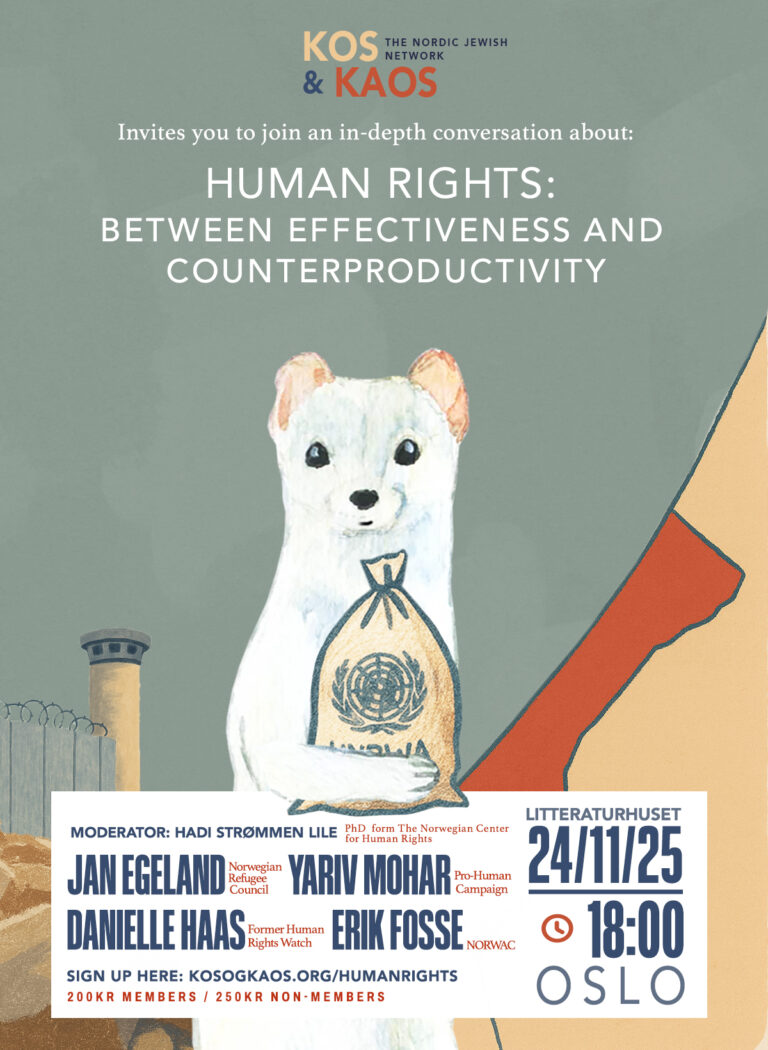
In an era when human rights language shapes global perception of war and morality,
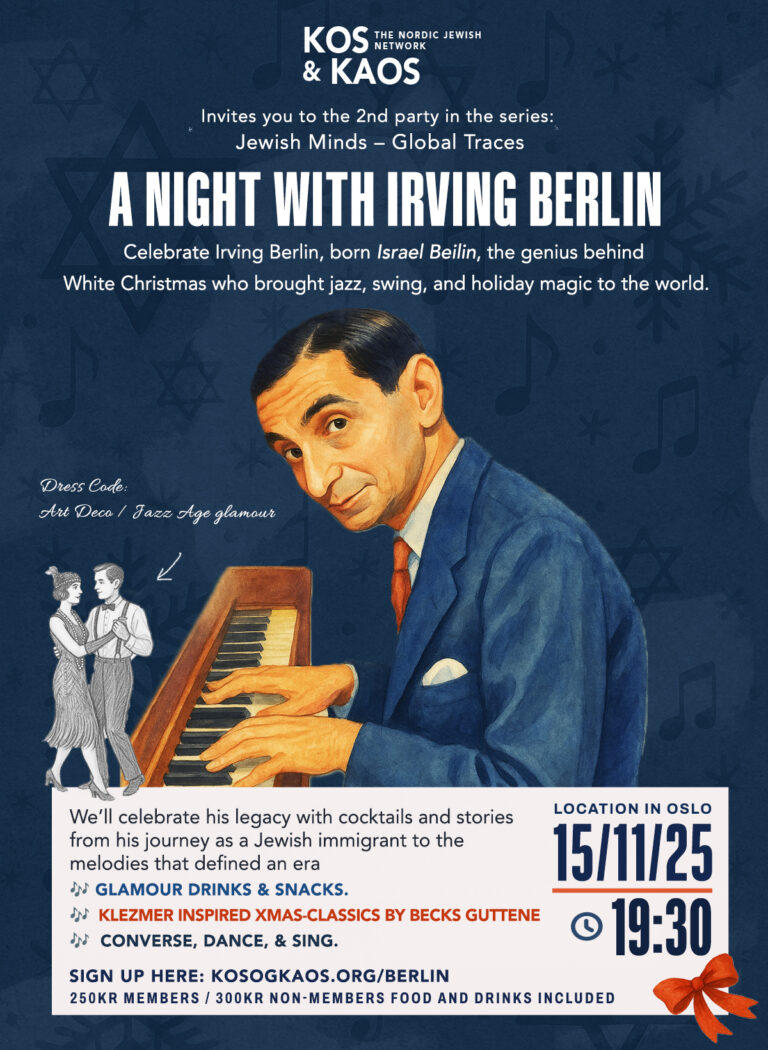
On a sparkling Saturday evening, Kos & Kaos transformed Oslo into a 1920s jazz
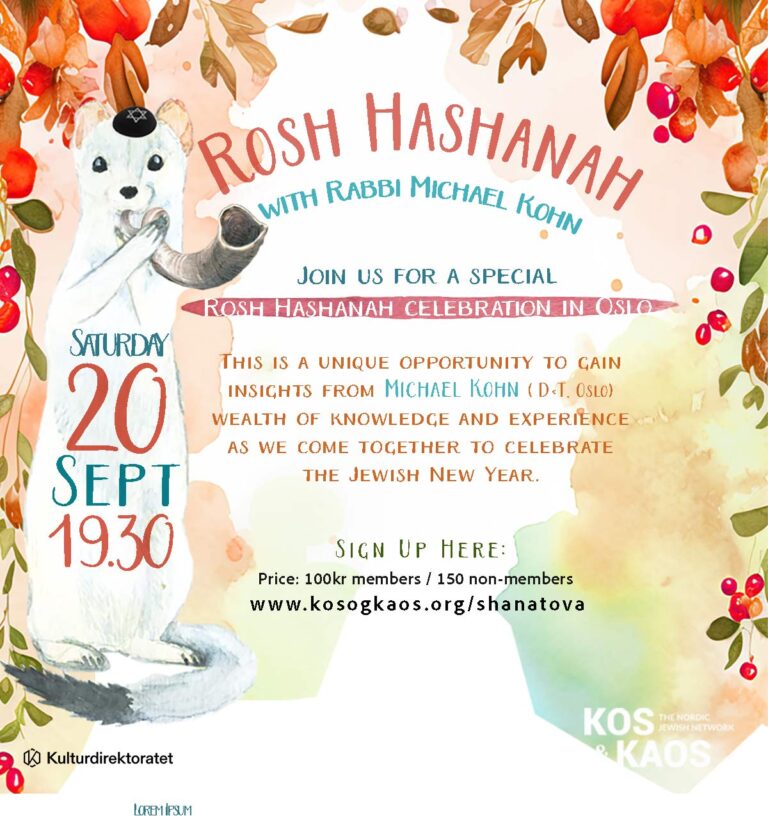
On Saturday evening, Kos & Kaos welcomed the Jewish New Year with an evening
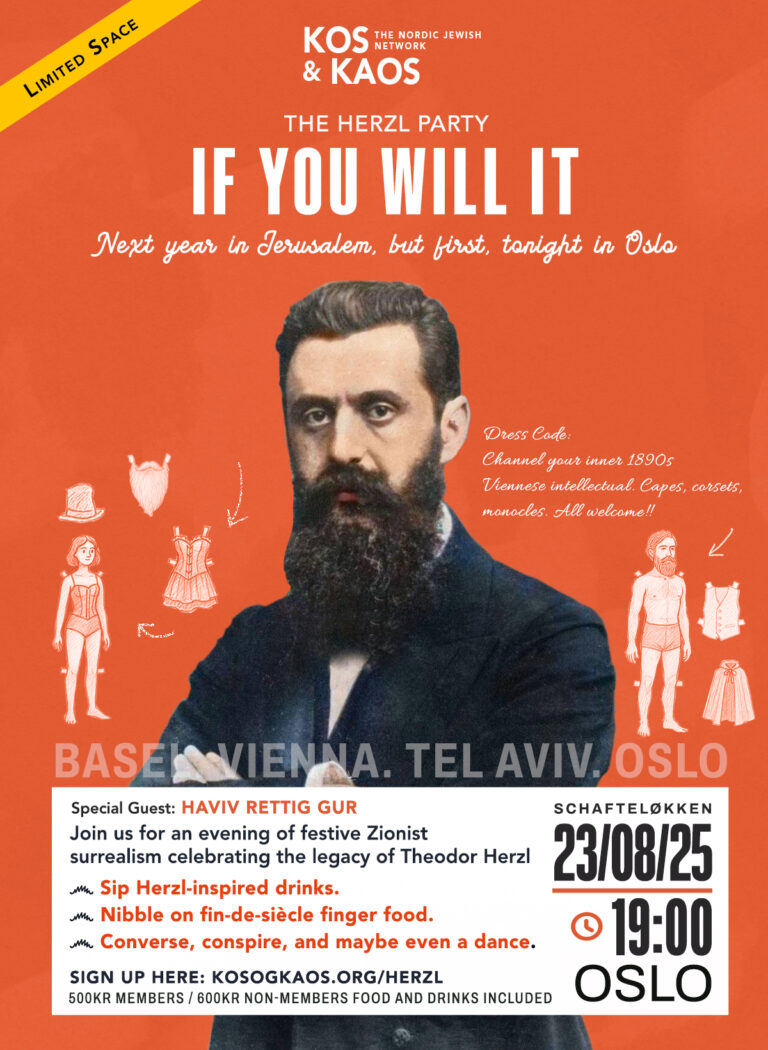
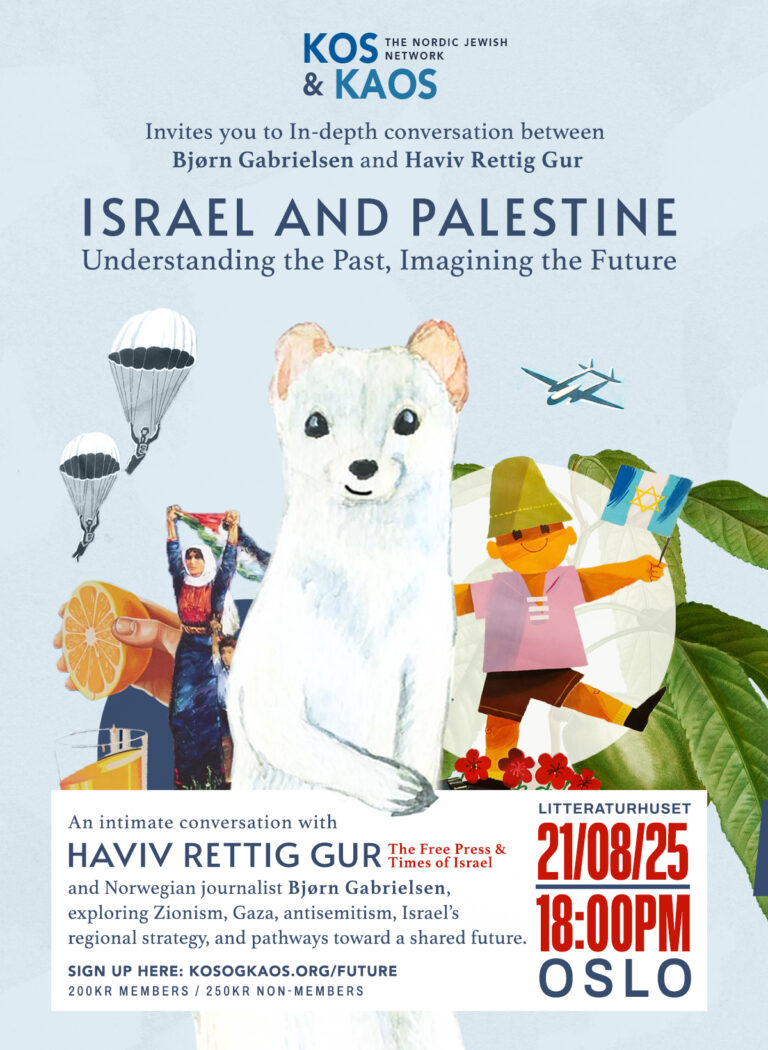
On August 21st at Litteraturhuset in Oslo, journalist Bjørn Gabrielsen sat down with Israeli
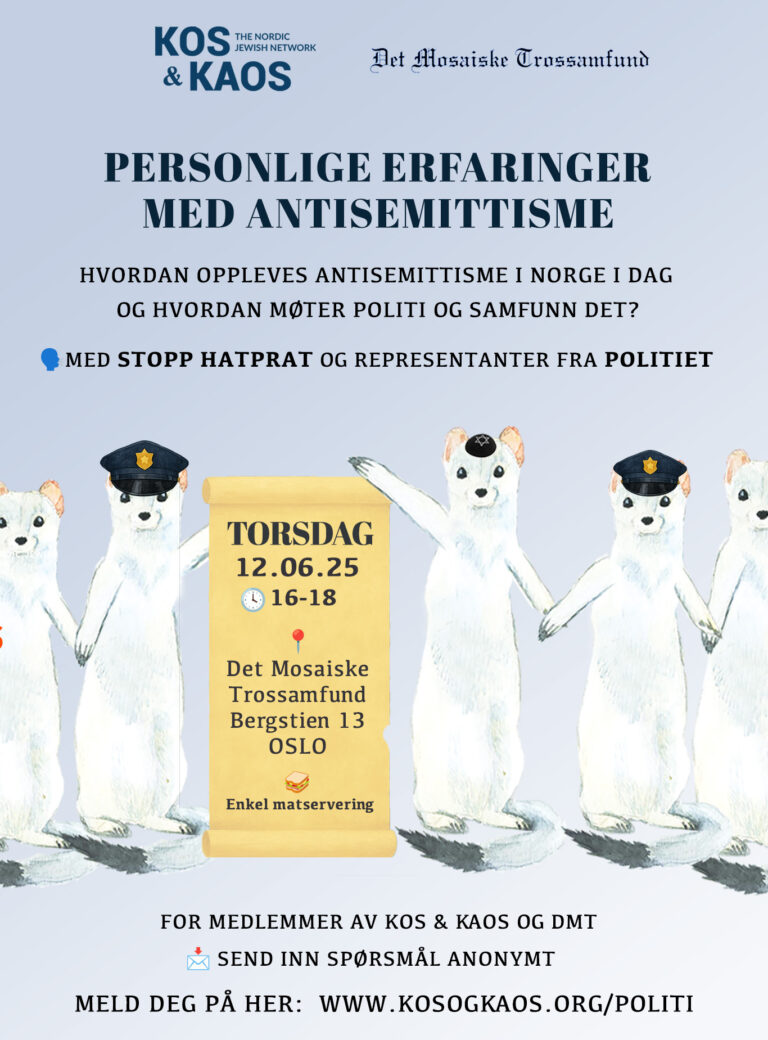
In this important session, 44 participants gathered for an evening of dialogue and reflection
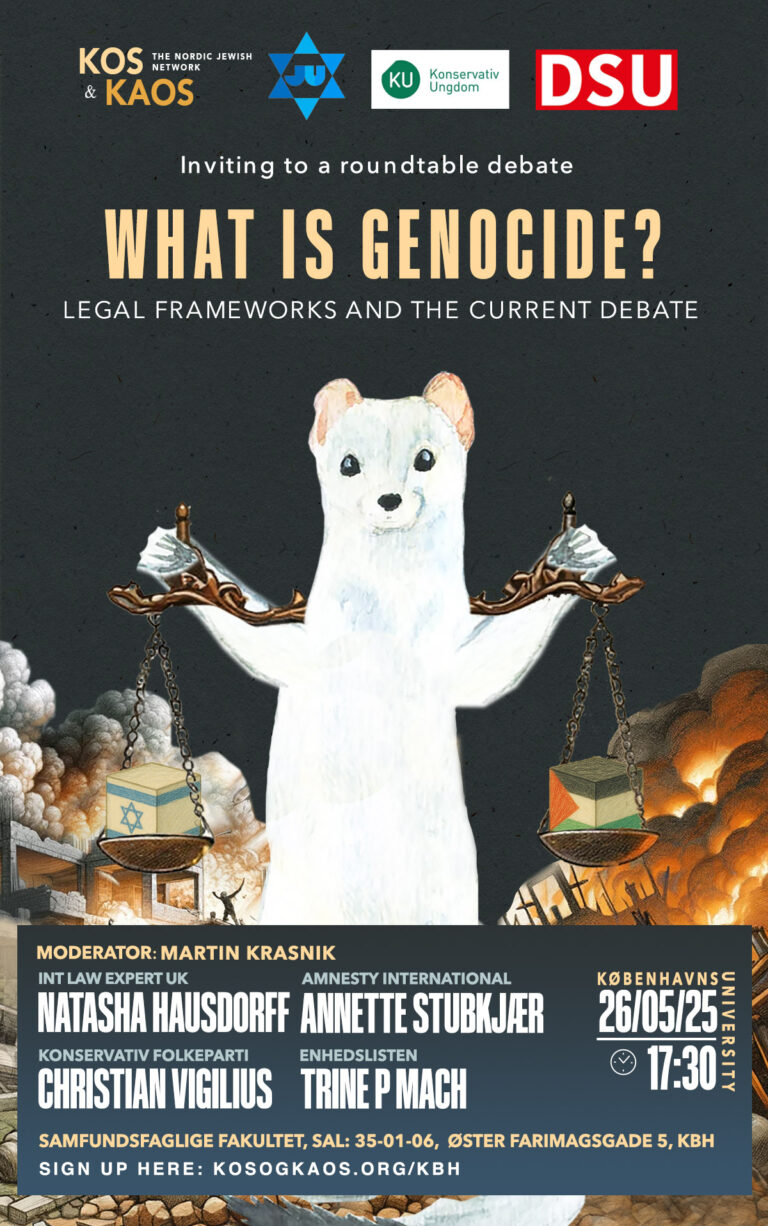
Held in Copenhagen and Oslo, these events brought together voices from across the political
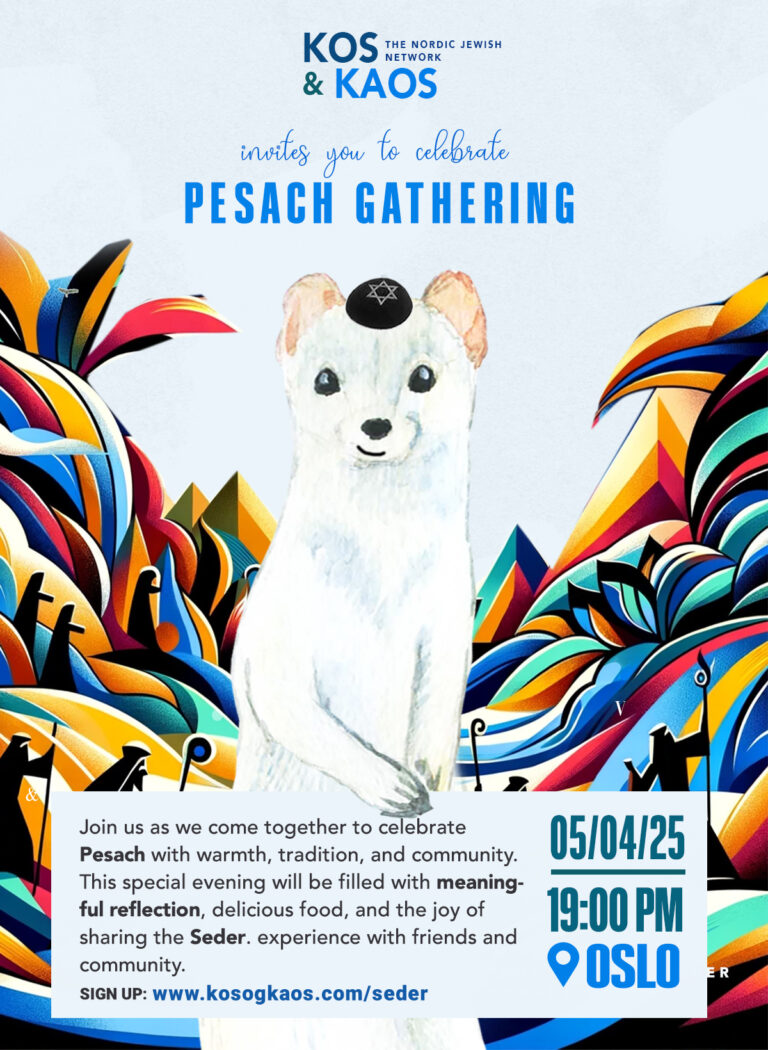
On Saturday evening, Kos & Kaos gathered at the Jewish Museum in Oslo to
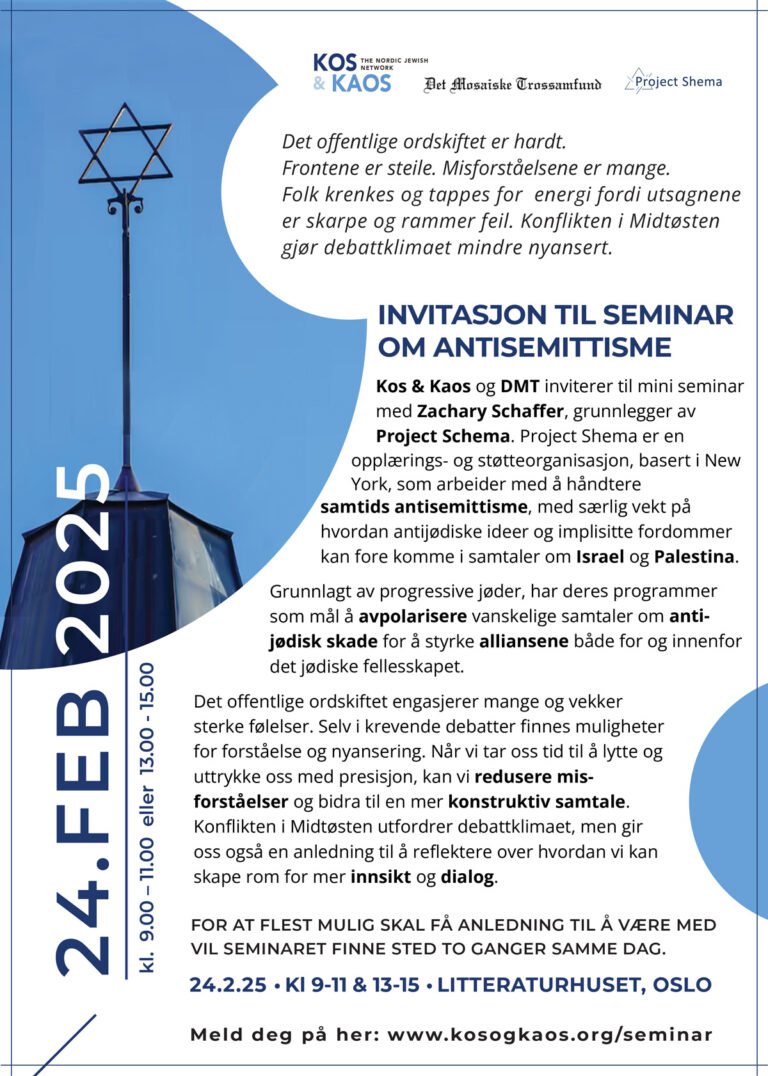
Zachary Schaffer led a powerful session, taking participants on a historical and analytical journey
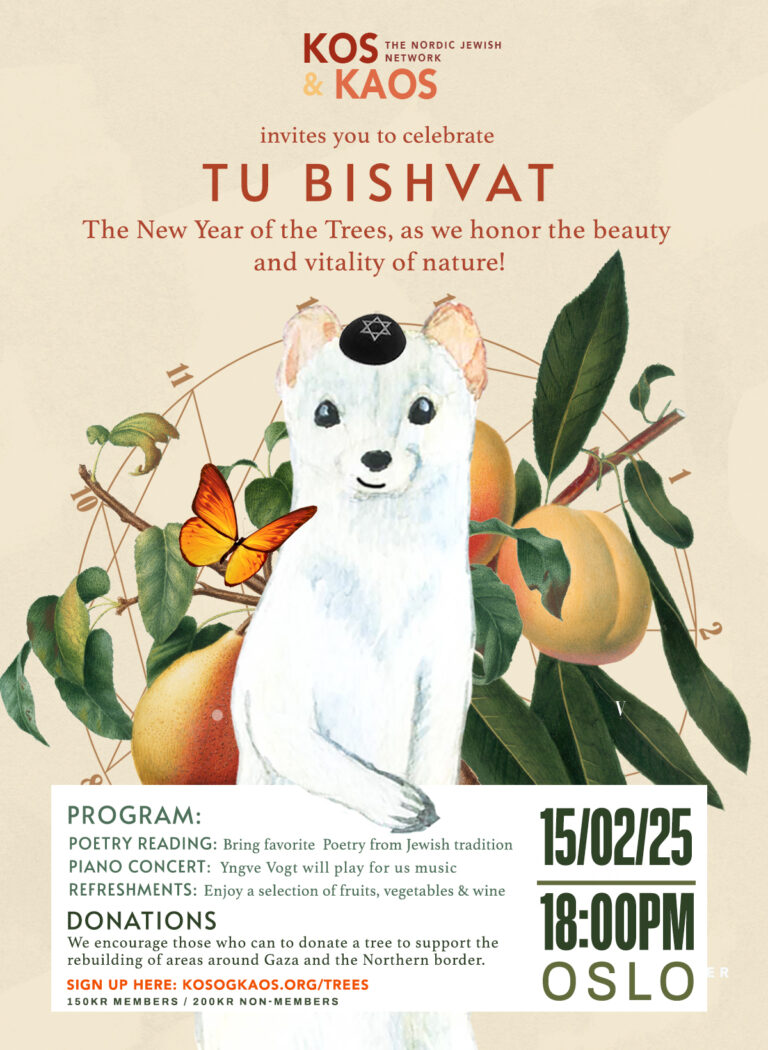
On Saturday night, the Kos & Kaos community gathered at the Jewish Museum in
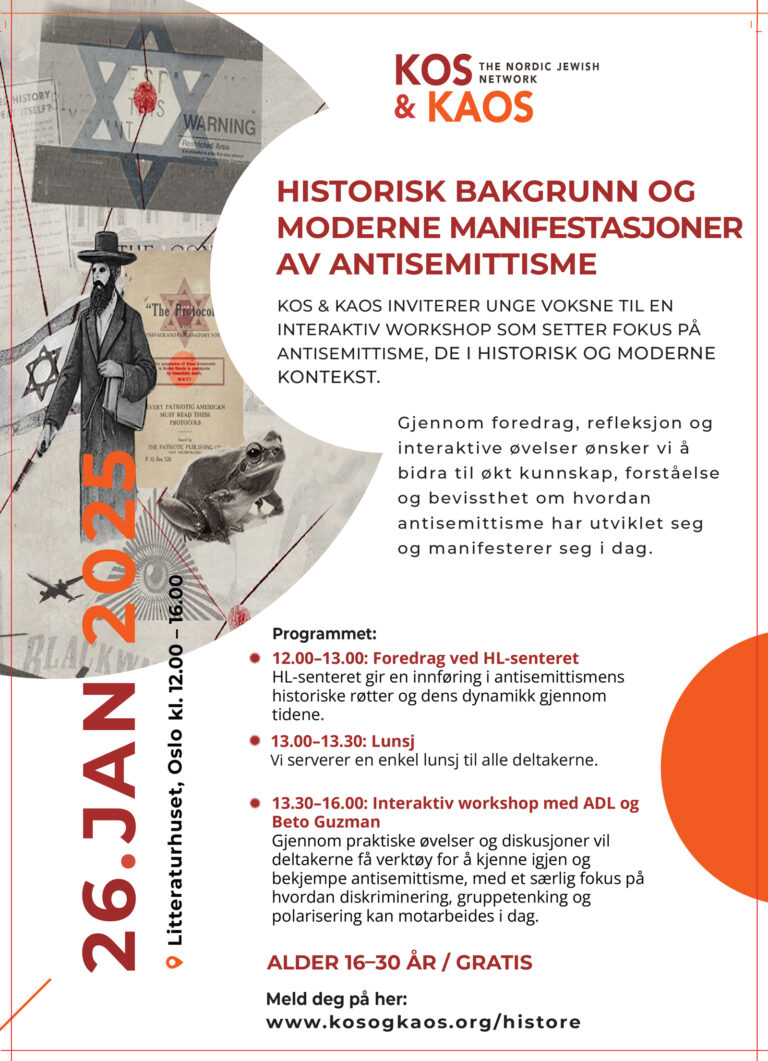
Kos & Kaos, in collaboration with HL-senteret and the Anti-Defamation League (ADL), hosted a
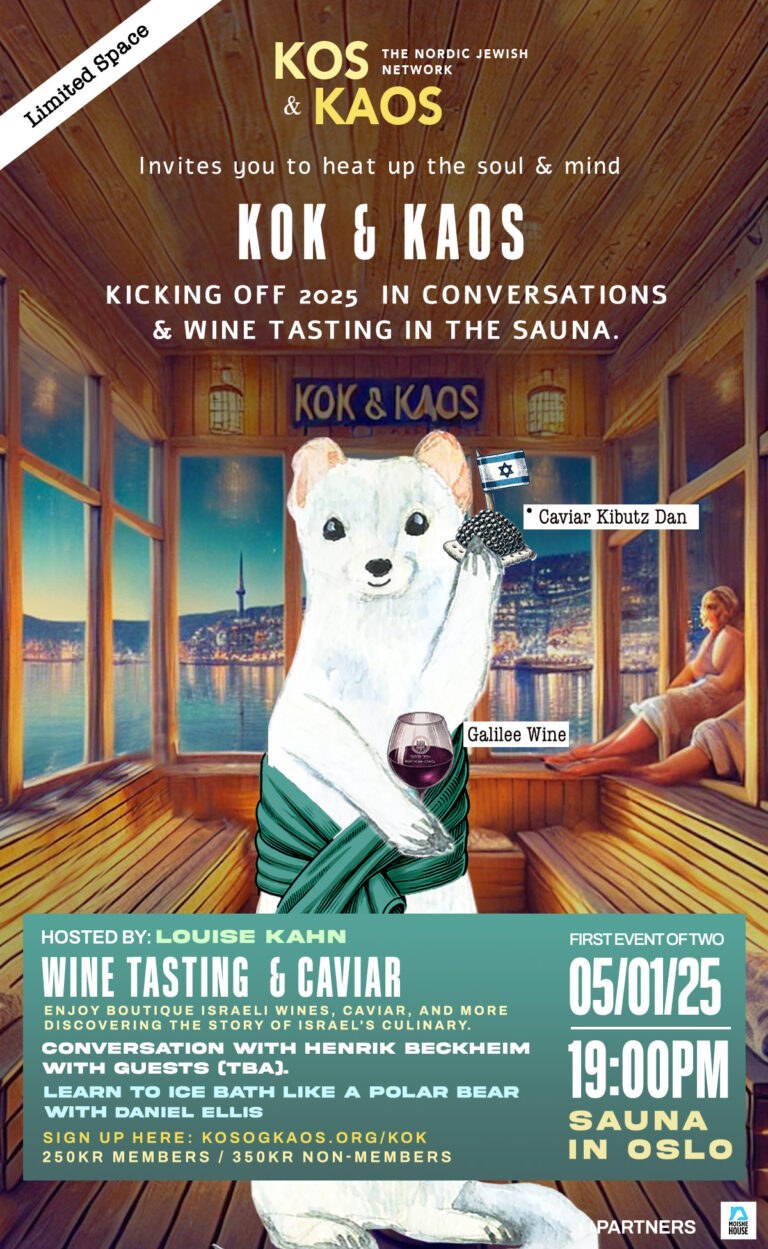
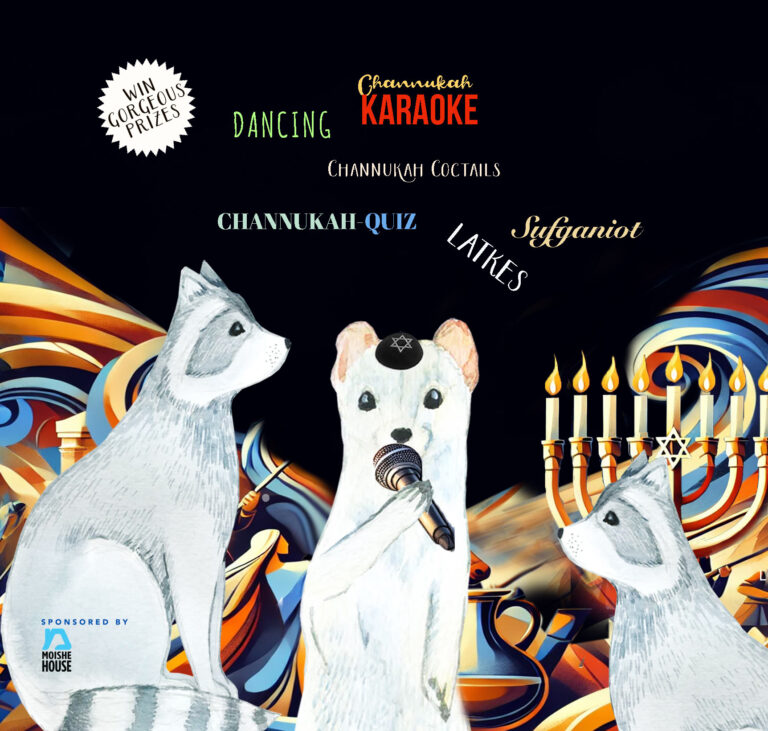
Kos & Kaos hosted a wild and vibrant Chanukah celebration, filled with joy, connection,
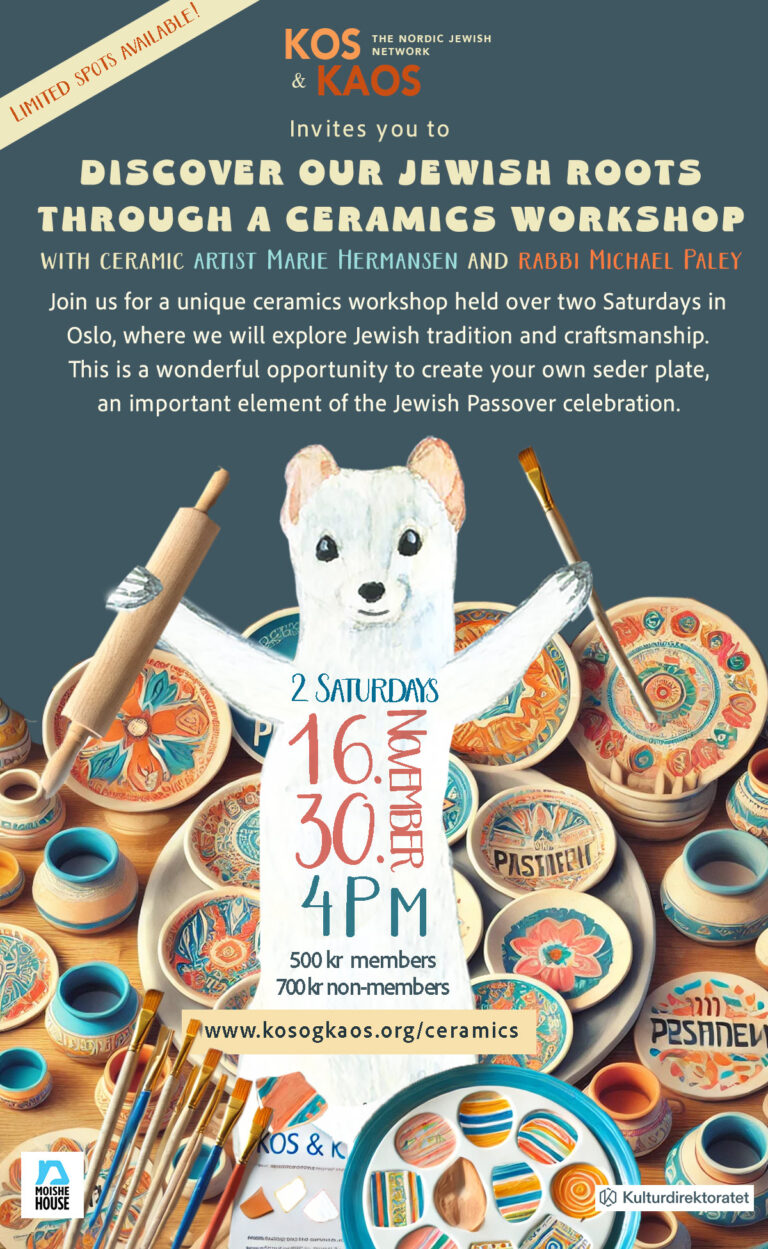
Kos & Kaos hosted a two-day ceramics workshop at the Jewish Museum in Oslo,
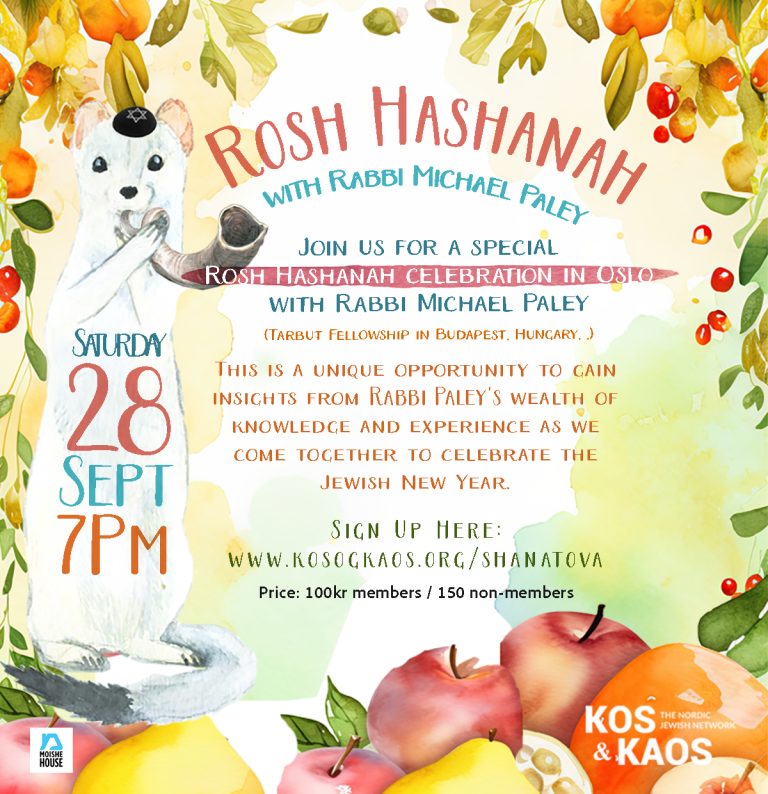
Kos & Kaos’s Rosh Hashanah celebration on September 28 was a blast! With approximately
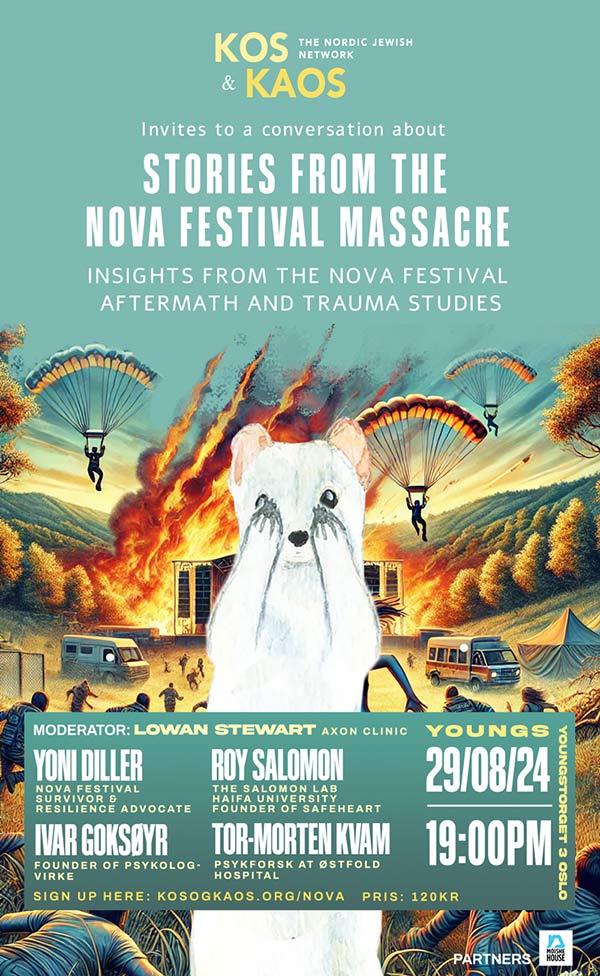
The recent roundtable debates on the Nova Festival massacre, held in Stockholm and Oslo,
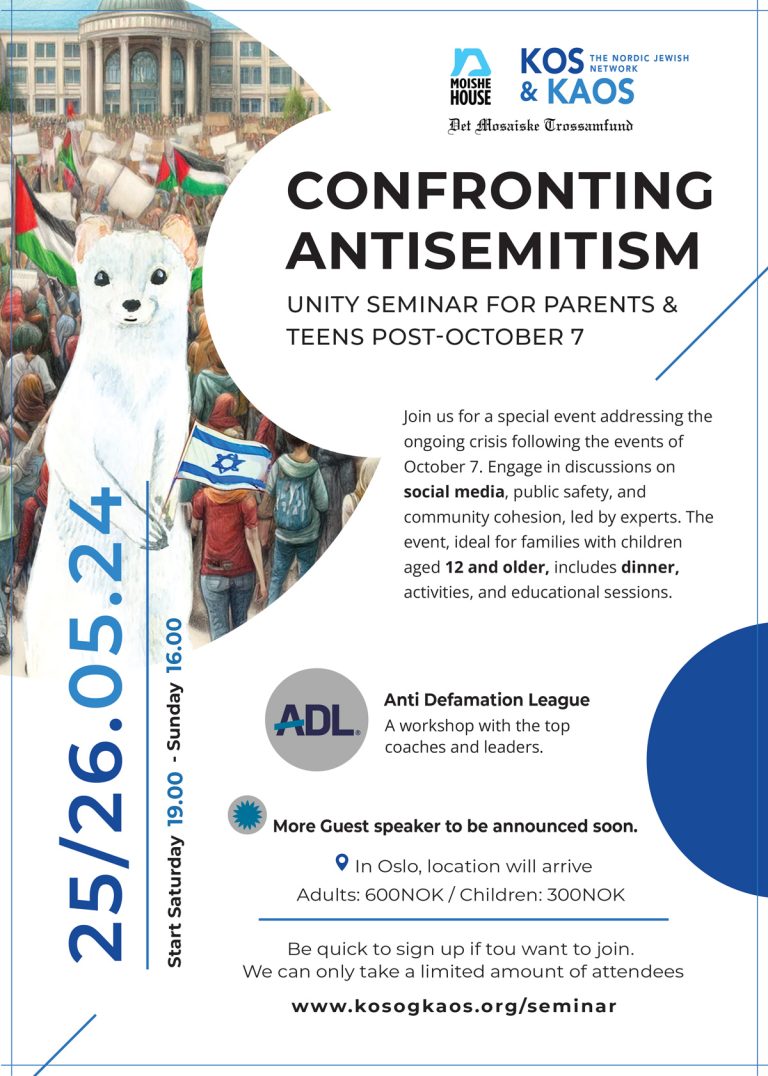
The seminar was a resounding success with over 30 participants, including numerous teenagers. Through